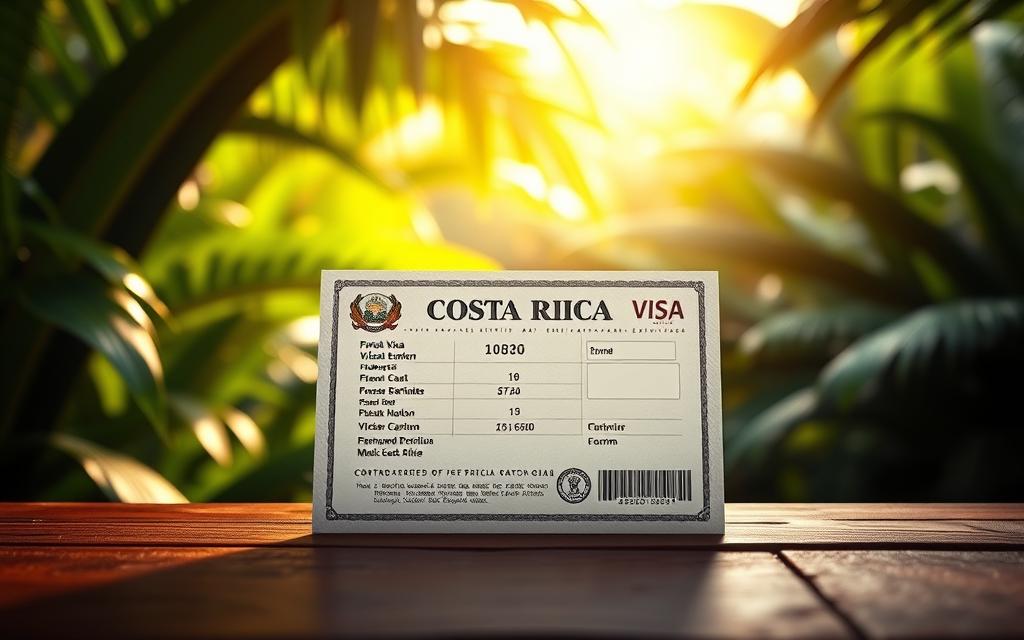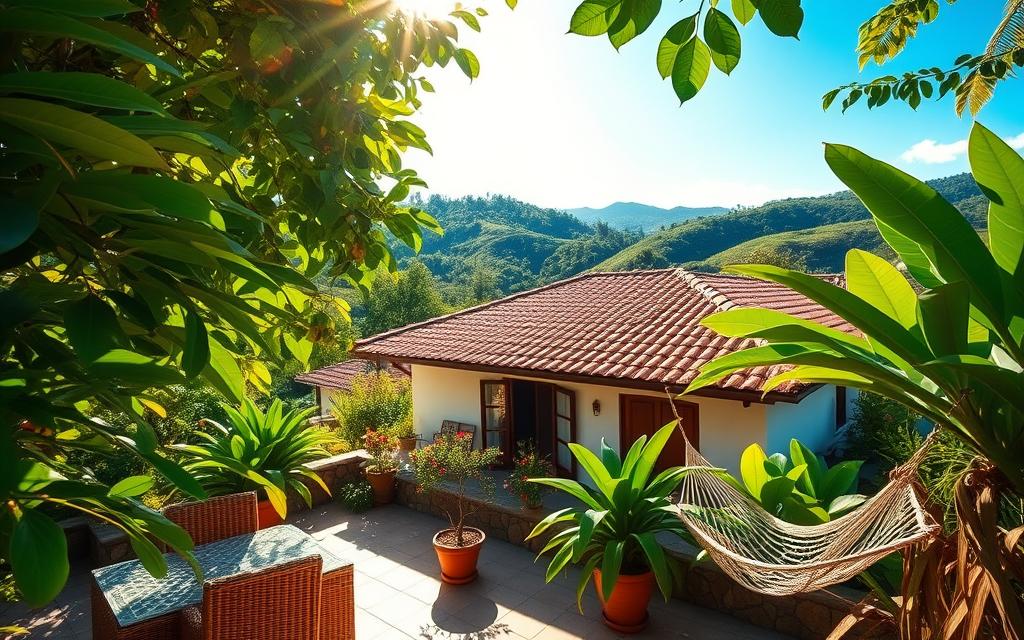As a hub for international workers and service providers, Costa Rica has introduced Law No…

How long can you stay in Costa Rica without residency? We Explain
Many travelers are drawn to Costa Rica’s Pura Vida lifestyle, but understanding the country’s immigration laws can be challenging. At Costa Rica Immigration Experts (CRIE), we have over 20 years of experience helping clients navigate these complexities.
As a tourist, you can stay in Costa Rica for a certain period without obtaining residency. However, it’s crucial to understand the rules and limitations to avoid any issues during your stay. Typically, citizens of many countries, including the US and Canada, can remain in Costa Rica as tourists for up to 180 days.
We will guide you through the differences between tourist stays and residency options, helping you make informed decisions about your time in this beautiful Central American country.
Understanding Costa Rica’s Tourist Visa Rules
To ensure a stress-free entry into Costa Rica, it’s crucial to comprehend the country’s tourist visa regulations. Costa Rica has different visa rules for different countries, and understanding these rules helps visitors follow the law and enjoy their visit without problems.
Tourist Visa Duration by Nationality
The duration of a tourist visa in Costa Rica varies based on nationality. Citizens of countries like the United States and Canada are allowed to enter Costa Rica without a pre-arranged visa, but they must meet specific requirements, such as having a valid passport and proof of onward travel. For the most up-to-date information on visa requirements and durations, it’s best to check Costa Rica’s official immigration website.
Some nationalities require a consular visa before traveling to Costa Rica. It’s essential to check the specific requirements for your country of citizenship to avoid any issues during your trip.
Entry Requirements for Tourists
Tourists visiting Costa Rica must meet several entry requirements. These include having a valid passport with at least six months of validity remaining from the planned exit date. Most visitors must also show proof of onward travel, typically in the form of a return or onward ticket.
- Financial solvency requirements mean visitors should be prepared to demonstrate sufficient funds to support themselves during their stay.
- While citizens of many countries don’t need to apply for a visa in advance, they still receive a tourist visa stamp upon entry.
- Understanding and meeting all entry requirements ensures a smooth immigration process and helps avoid potential issues during your stay in Costa Rica.
The 180-Day Tourist Stay in Costa Rica
When planning a trip to Costa Rica, it’s essential to grasp the rules surrounding the 180-day tourist stay. Knowing these rules can help you avoid any potential issues during your visit.
What the 180-Day Rule Actually Means
The 180-day rule allows eligible tourists to stay in Costa Rica for up to 180 days. However, this doesn’t mean that every visitor will automatically receive the full 180 days.
According to the current regulations, immigration officers have the discretion to grant fewer days based on individual circumstances. For more information on the latest rules, you can visit Costa Rica’s immigration website.
- Immigration officers at Costa Rican ports of entry have significant discretion when determining how long visitors can stay.
- While the maximum stay is 180 days for eligible nationalities, officers often issue shorter stays based on factors like previous visit patterns and purpose of visit.
- The entry stamp in your passport is the official authorization of your stay, and the date written or stamped is your legal deadline to either leave or initiate a residency process.
Immigration Officer Discretion on Entry Stamps
Immigration officers may ask for additional documentation beyond the basic requirements, such as proof of financial means or accommodation details.
Being respectful and honest about your travel plans can positively influence an immigration officer’s decision regarding your entry stamp duration.
- Understanding that entry permission is at the discretion of immigration officers helps visitors prepare and maintain realistic expectations.
- Officers may become suspicious of visitors who appear to be living in Costa Rica through repeated border runs, potentially resulting in shorter stays.
How Long Can You Stay in Costa Rica Without Residency?

Visitors to Costa Rica often wonder about the maximum duration they can stay without obtaining residency. Understanding the rules and regulations surrounding tourist stays is crucial for a hassle-free experience in this beautiful country.
Maximum Legal Stay as a Tourist
The maximum legal stay as a tourist in Costa Rica is typically 180 days, but this can vary based on nationality and the discretion of immigration officers. It’s essential to understand that this period is granted upon entry, and the onus is on the visitor to keep track of their stay.
For many nationalities, a tourist visa is not required to enter Costa Rica, but the 180-day rule generally applies. We recommend checking the specific entry requirements for your country before traveling to ensure compliance with immigration regulations.
Consequences of Overstaying Your Tourist Visa
Overstaying your tourist visa in Costa Rica can have significant consequences. While the immigration department is not currently enforcing fines strictly, regulations allow for a fine of $100 per month of overstay. The consequences of overstaying are not limited to financial penalties.
- Overstaying can result in complications when attempting to exit the country, including potential delays at immigration checkpoints.
- Establishing a history of overstaying can negatively impact future entries to Costa Rica.
- In severe cases, you could face deportation and a ban from re-entering Costa Rica for a specified period.
- Overstaying can also complicate the process of applying for residency in the future.
It’s crucial for visitors to maintain legal status throughout their stay. For those in the process of applying for residency, leaving and re-entering the country may be necessary if the tourist visa expires during the application process.
Options for Extending Your Stay in Costa Rica

Extending your stay in Costa Rica can be achieved through a few different methods, which we’ll explore in detail. If you’re looking to stay beyond the initial 180-day tourist visa, it’s essential to understand the available options and their implications.
Border Runs: How They Work
A “border run” is a common strategy used by tourists to extend their stay in Costa Rica. This involves leaving the country and re-entering to receive a new tourist stamp, effectively resetting the 180-day clock. While this method can provide a temporary solution, it’s crucial to be aware of the rules and potential consequences of overstaying your.
To execute a border run, you can travel to a neighboring country such as Panama or Nicaragua. The process typically involves crossing the border, spending a few hours or days outside Costa Rica, and then re-entering. However, immigration officers have the discretion to grant or deny entry, so there’s no guarantee of being allowed back in.
Visa Extension Applications
Costa Rica offers an official visa extension option that allows tourists to extend their stay for up to 90 additional days beyond their initial authorized period without leaving the country. To apply for this extension, you must submit your application to the General Immigration Office (Dirección General de Migración y Extranjería) before your current tourist visa expires.
The application process requires documentation, including your passport, proof of economic solvency, a completed application form, and payment of the corresponding fee. It’s also important to note that visa extensions are not automatically granted and are subject to approval by immigration authorities who evaluate each case individually.
For those considering longer stays, beginning the residency application process is often a better solution than repeatedly extending tourist visas, as it provides a path to legal long-term stay. Starting your residency process with experts means you can remain legally in the country during the application period without needing to make border runs.
Living in Costa Rica as a Tourist: Practical Realities

While Costa Rica is a popular destination for tourists, the reality of living there without residency can be complex. As we explore the practical aspects, it becomes clear that non-residents face numerous challenges.
Limitations on Banking and Services
Living in Costa Rica as a tourist comes with significant limitations, particularly when it comes to banking and accessing various services. Non-residents often find it difficult to open bank accounts or obtain a Costa Rican driver’s license, which can complicate daily life.
Without a residency permit, individuals may encounter hurdles in securing basic services, making everyday tasks more challenging. The restrictions on banking services can lead to additional costs due to international banking fees and higher insurance premiums.
Housing and Cost Considerations
The cost of housing in Costa Rica varies significantly depending on the location. Tourist areas and expatriate communities tend to have premium prices, with basic apartments ranging from $800 to $2,000 or more per month.
Tourists often face higher rates for short-term accommodations because landlords prefer the stability of longer-term leases. Utilities, especially electricity, can be surprisingly expensive, particularly in coastal areas where air conditioning is commonly used.
- Housing costs are significantly influenced by location, with tourist and expat areas being more expensive.
- Short-term accommodations for tourists come at a premium due to the preference for longer leases.
- Utilities, such as electricity, can be more expensive than expected.
For those considering an extended stay, the initial investment in obtaining temporary residency can lead to reduced costs and greater stability compared to maintaining perpetual tourist status.
The Digital Nomad Visa Option
For digital nomads, Costa Rica offers a special visa that allows stays of up to a year, provided they meet certain income requirements. This visa is particularly attractive for those who wish to experience life in Costa Rica without the immediate need for permanent residency.
Eligibility Requirements
To be eligible for Costa Rica’s Digital Nomad Visa, applicants must demonstrate a monthly income of at least $3,000. Additionally, they must provide proof of health insurance and a clean criminal record. All documents not in Spanish must be officially translated and authenticated.
Application Process and Benefits
The application process involves gathering and authenticating required documents, submitting the application through Costa Rica’s digital platform, and completing biometric registration. The benefits are substantial, including exemption from income tax on foreign-sourced income and import tax exemptions for work equipment. Visa holders can also legally drive in Costa Rica using their foreign driver’s license, open local bank accounts, and sign longer-term leases.
Our team at Costa Rica Immigration Experts can guide you through each step of the application process, ensuring your application is complete and correctly submitted to maximize approval chances. For a personalized consultation, please call or WhatsApp us at +506 8706-3888, +506 8373 2085, or for calls from the USA or Canada, +1 305-906-6784. You can also visit our website at www.crie.cr or email info@crie.cr.
Residency Options for Long-Term Stays
Costa Rica offers a range of residency programs tailored to different needs and circumstances. For those looking to stay long-term, understanding these options is key to making an informed decision.
Pensionado (Retiree) Residency
The Pensionado residency category is designed for retirees who receive a pension from a qualified source. To qualify, applicants must demonstrate a minimum monthly income of $1,000 from a pension or retirement fund. This category offers various incentives, including discounts on services and goods.
Rentista (Income-Based) Residency
For individuals with a stable income from sources other than a pension, the Rentista category is an option. Applicants must show a minimum annual income of $2,500 from a reliable source, such as investments or rental properties. This category is ideal for those who can demonstrate financial stability.
Inversionista (Investor) Residency
Inversionista residency is available to those who invest in Costa Rica. The minimum investment required can vary, but it typically involves investing in a business, real estate, or other economic activities that benefit the country. This category is attractive to entrepreneurs and investors looking to establish a presence in Costa Rica.
Family-Based Residency Options
Family-based residency in Costa Rica allows spouses, dependent children under 25, and dependent parents of qualified residents to obtain their own residency status. The primary applicant must first qualify under one of the main residency categories before family members can apply as dependents. Our team at Costa Rica Immigration Experts specializes in handling family-based applications, understanding that each family situation is unique.
Every residency application is unique, and our immigration experts consider all factors, including family size and document requirements, to offer the best price and solutions for your needs. Temporary residents can’t work until they get permanent residency after three years.
The Residency Application Process
To successfully apply for residency in Costa Rica, it’s crucial to be well-prepared with all required documents and information. The residency process can be intricate, but with the right guidance, applicants can navigate it effectively.
Required Documents and Preparation
Preparing the necessary documents is a critical step in the residency application process. Applicants must gather various documents, including but not limited to, a valid passport, birth certificate, and proof of income. Ensuring that all documents are correctly authenticated and translated is vital for a smooth application process.
Our team of experts is available to guide you through this process, ensuring that your application is complete and accurate. This preparation stage is crucial for avoiding delays in the processing of your application.
- Gathering required documents such as a valid passport and birth certificate.
- Authenticating and translating documents as necessary.
- Completing application forms accurately.
Timeline and Expectations
The timeline for the residency application process in Costa Rica typically ranges from 8 to 12 months. However, this can vary based on the complexity of the application and the current volume being processed by the immigration authorities.
After submitting the application, applicants receive a “Hoja de Trámite,” which allows them to remain in Costa Rica legally during the processing period. Our team maintains regular communication with immigration authorities, providing updates on the status of your application and addressing any requests for additional information promptly.
- Initial document submission and preliminary review.
- Potential requests for additional documentation.
- Final review and approval notification.
Start your residency process with us today, and you’ll never have to leave Costa Rica again. With our expertise, you can enjoy a seamless transition to residency, allowing you to fully integrate into Costa Rican life without the hassle of frequent border runs.
Staying Legal: Tips for Managing Your Immigration Status
Understanding and adhering to Costa Rica’s immigration regulations is vital for a smooth and enjoyable experience. At Costa Rica Immigration Experts (CRIE), we have helped numerous individuals navigate the complexities of Costa Rica’s immigration laws.
Effective management of your immigration status involves several key considerations. One crucial aspect is tracking your time in the country to avoid overstaying your visa.
Tracking Your Time in Country
To comply with Costa Rica’s immigration rules, it’s essential to keep track of your stay. This involves being aware of the entry date stamped on your passport and understanding the maximum duration you’re allowed to stay as a tourist.
- Regularly check your entry stamp to know when you entered Costa Rica.
- Understand the maximum stay allowed for tourists from your country.
- Plan your exit or residency application accordingly to avoid overstaying.
Keeping Up with Changing Regulations
Costa Rica’s immigration regulations can change, making it vital to stay informed. Following official announcements from the Dirección General de Migración y Extranjería (DGME) and consulting with experts like CRIE can help you stay up-to-date.
- Follow official government announcements for updates on immigration policies.
- Consult with reputable immigration experts to understand how changes affect your status.
- Join expatriate communities for informal insights, but always verify information through official channels.
By staying informed and proactive, you can ensure compliance with Costa Rica’s immigration laws and enjoy a hassle-free stay. Our team at CRIE is committed to helping you navigate these regulations with our extensive experience and expertise.
Conclusion: Making the Right Choice for Your Costa Rica Stay
The decision to stay in Costa Rica as a tourist or pursue residency is significant and depends on several factors, including your long-term goals, financial situation, and desired lifestyle.
For stays beyond 180 days, the limitations of tourist status become restrictive, making residency a more practical option. The digital nomad visa offers a middle ground for remote workers, providing legal status for up to two years.
At Costa Rica Immigration Experts (CRIE), we have guided thousands of clients through these decisions, helping them match their circumstances to the most appropriate immigration pathway. We emphasize the importance of maintaining legal status for peace of mind and to prevent complications.
Starting your residency process with experienced professionals like us ensures you navigate immigration law correctly, saving time, money, and stress. With over 20 years of experience, we are one of the oldest and most trusted immigration firms in Costa Rica. Start your residency process with us today.


